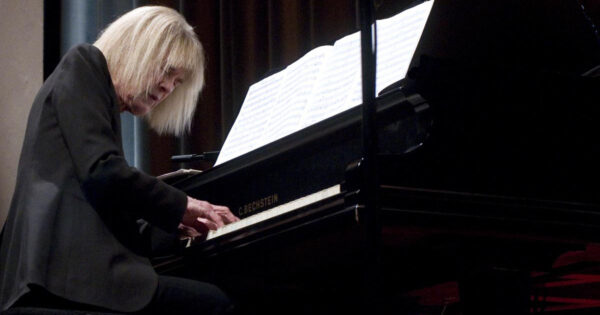Carla Bley Takes the Escalator on Echoes. A Jazz Iconoclast Passes.

We remember Carla Bley. The jazz composer provocateur created one of the most varied and exploratory body of works in jazz, spanning seven decades. She passed away at 87. Bley was a musician who I have followed since the early 1970s. I first discovered her as composer of darkly melodic songs on albums by her then husband and pianist Paul Bley’s albums like Barrage and Footloose. Then she released Escalator over the Hill in 1971. It was a sprawling opera with an insane libretto by Paul Haines, but the compositions and music performances were entrancing including not only jazz greats like Gato Barbieri, Charlie Haden and Don Cherry, but singer Linda Ronstadt, Cream bassist and singer Jack Bruce, guitarist John McLaughlin and Mothers of Invention synth player, Don Preston. Over the years Bley virtually reinvented the Big Band vernacular and brought a sense of whimsy to jazz that has rarely existed since the days of Cab Calloway. Despite her idiosyncratic style her compositions were embraced by leading lights in jazz including Gary Burton, George Russell and Tony Williams. Her enduring compositions include “Silent Spring”, “Ida Lupino” and “Sing Me Softly of the Blues.” In the 1980s and 90s, Carla practically owned the composing and arranging categories in DownBeat Magazine’s Critics Poll.
I had the fortune of producing a Jazz Profiles documentary on Carla Bley for NPR. I interviewed her on her winter home on a small island off of Tortola in the British Virgin Islands where she regaled me with stories from across her career and then made me one of the most incredible soups. She was diagnosed with brain cancer in 2018. It’s particularly sad that one of the brightest minds in music would be attacked this way. She died on October 17. She was 87.
Tonight, we’ll spend a half hour with Carla Bley’s music.
